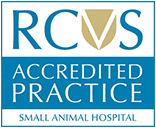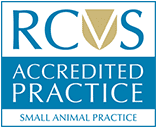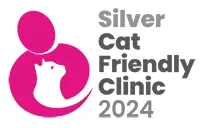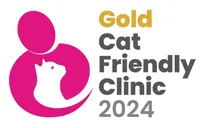Cats are usually very sensible creatures when it comes to eating things which are not good for them. However they like to keep themselves scrupulously clean and will groom off anything on their coats of paws which shouldn’t be there.
This is now they can swallow things like antifreeze or decorating products which they have walked through, or brushed up against.
Cats also like to nibble at grass outside, and they will often chew at indoor plants or cut flowers.
Some of the most common, potentially severe cat poisons reported to the Veterinary Poisons Information Service are:
- Paracetamol
- Lilies (Lilium spp)
- Ethylene glycol – which is the active ingredient in Antifreeze
- Spot-on flea treatments for dogs – many contain an ingredient called Permethrin which is poisonous to cats
- Metaldehyde, a common active ingredient of slug and snail baits or pellets
- Decorating materials – items such as paints, varnishes, preservatives and paint and glass cleaners can contain petroleum distillates that can be harmful to cats
Paracetamol
This is a common human painkiller which is highly dangerous to cats, just one tablet is enough to cause severe illness or death.
Never give paracetamol to your cat.
Signs of poisoning include depression, vomiting, swelling of the face and paws, and a bluish discolouration of the skin.
If you suspect your cat has had some Paracetamol you must contact the surgery immediately on 01942 417800.
Lilies
Cats are very sensitive to plants of the Lilum species, including Easter, Stargazer, Tiger and Asiaticlilies.
All parts of the lily are toxic, even the flowers and pollen (which a cat can easily get on its coat if it brushes up against the plant). Less than one leaf eaten by a cat can cause kidney failure, which can be fatal.
Signs of poisoning include vomiting, anorexia (not eating) and depression.
If you suspect your cat has eaten or ingested some part of a Lily you must contact the surgery immediately on 01942 417800.
Always check flower labels for warning of toxicity to animals, and ensure that Lillies are kept out of reach of cats, and that all pollen is removed from them if you have them in your house.
Antifreeze (Ethylene Glycol)
This is very toxic to cats, and is found in antifreeze, de-icers and car screen washes.
Signs of poisoning include weakness, hypothermia, breathing difficulties, convulsions and kidney damage
Treatment is difficult, and is rarely successful, if you suspect your cat has had access to Ethylene Glycol contact the surgery immediately on 01942 417800.
To avoid accidental poisoning keep cats away when using these products, and always clean up any spillages carefully.
Some dog flea products
The active ingredient Permethrin Is found in many spot on flea preparations for dogs. It is also the active ingredient in some ant powders.
Cats can be poisoned if they are accidentally treated with these products, or when they groom themselves or other animals treated with these products.
Signs of poisoning include excess salivation, extreme thirst, high temperature, tremors or convulsions (fitting).
Urgent veterinary treatment is essential, please call us on 01942 417800 if you suspect your cat may have been in contact with these products.
Never use Dog flea products on cats.
Slug bait
Metaldehyde is the active ingredient in some slug baits, and even a tiny amount can be toxic to cats.
Signs of poisoning include salivation, twitching, unsteadiness and convulsions (fitting).
Signs of poisoning develop quickly so urgent veterinary treatment is required.
Do not use products containing Metaldehyde if you have pets.
Decorating materials
Petroleum distillates found in solvents for paints, glass cleaners, varnishes, wood preservatives(e.g. creosote), and brush cleaners (e.g. white spirit) can all cause problems for cats.
They cause irritation to the skin and feet, causing inflammation, blisters and burning. If the cat then grooms the product off its skin it can cause severe irritation to its mouth and oesophagus.
Fumes can also cause breathing difficulties.
Please contact us immediately on 01942 417800 if you think your cat may be have been accidentally poisoned with these products.
Make sure you keep cats away from decorating materials and clean up any spillages carefully.
It is every responsible owner’s nightmare for their pet to be poisoned. Make sure you’re prepared for such an emergency.
What to do if you think your cat has been poisoned:
- Stay calm.
- Remove your cat(s) from the source of poison.
- Contact us on 01942 417800 for advice immediately(24/7); tell us when, where and how the poisoning occurred if you can. Ideally, we will ask you to bring the packaging, plant or substance with you, but you must be careful and not expose yourself to any harm.
- Follow our advice. If we ask you to bring your pet to us please do so quickly and calmly.
- Never attempt to treat or medicate your cat(s) yourself. Some medicines for humans and other animals may be poisonous to your cat.
- Keep your cat(s) away from any other animals to avoid cross contamination.
Never ‘watch and wait’ in any case of suspected poisoning. If you suspect your pet has been poisoned, act fast and contact us on 01942 417800 for advice immediately.





